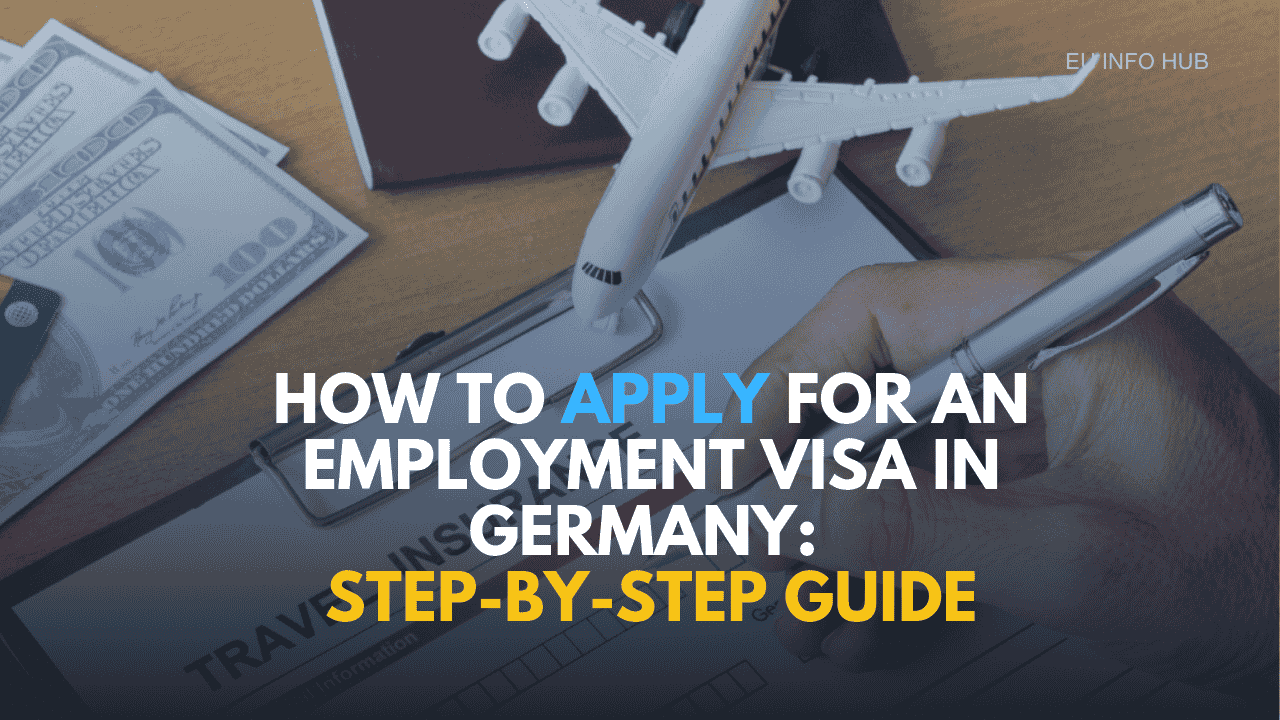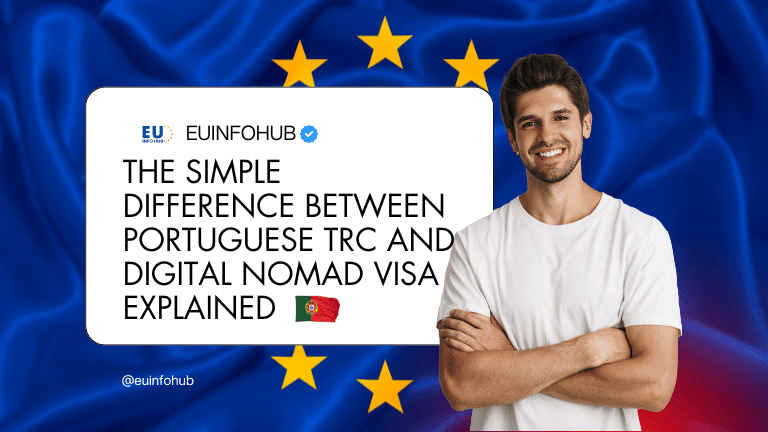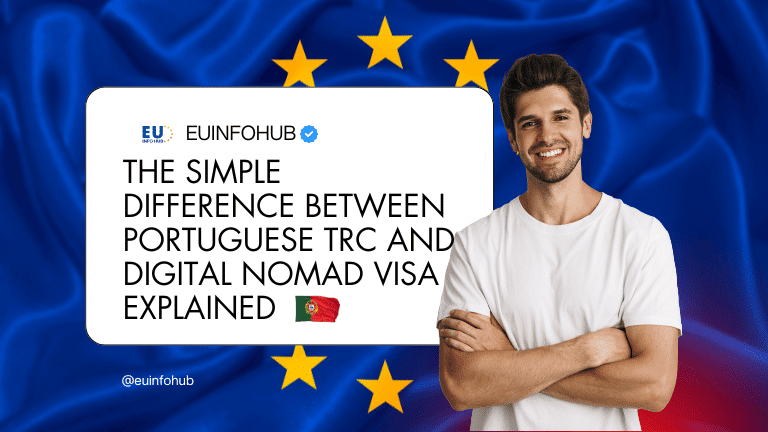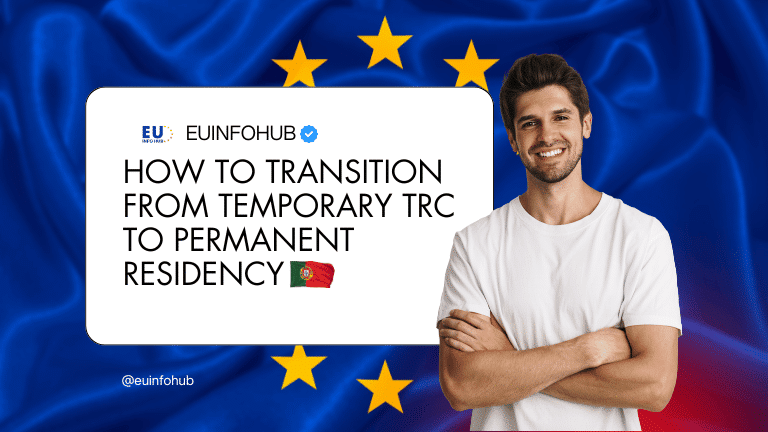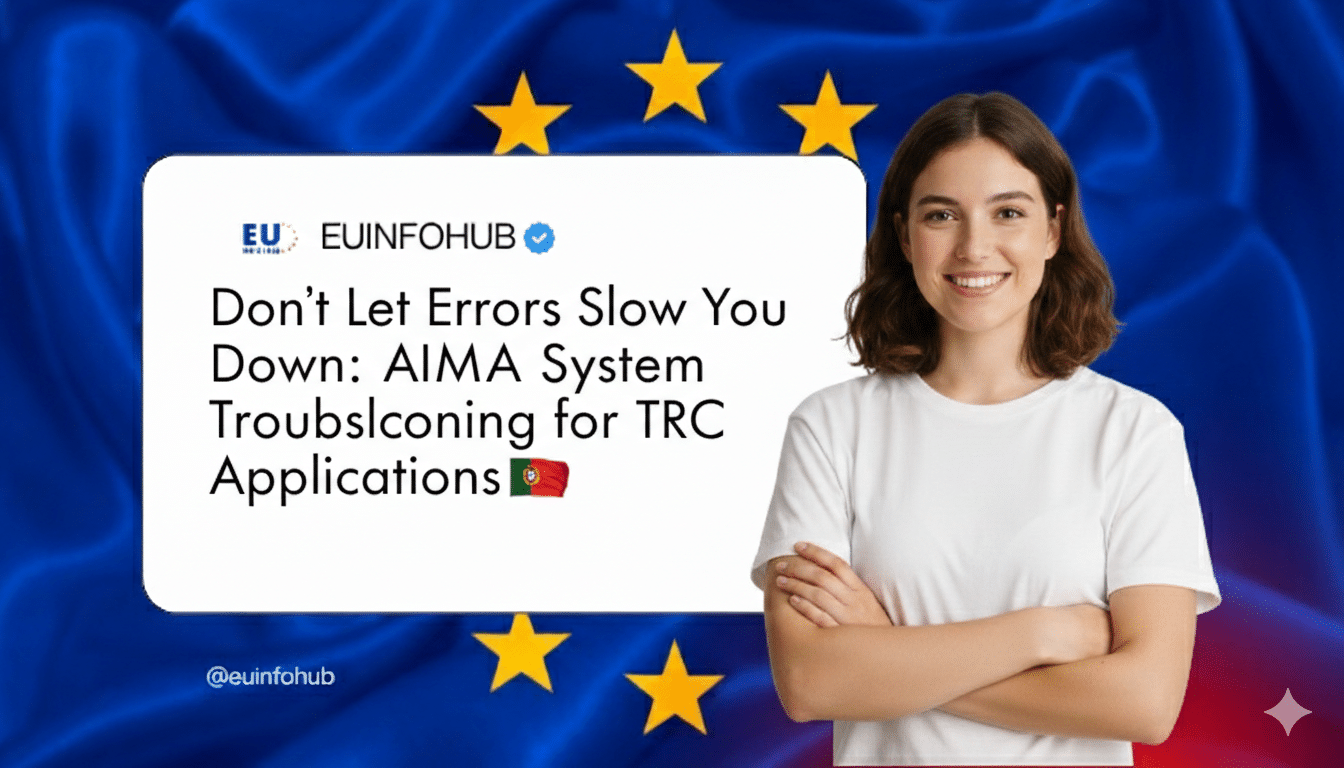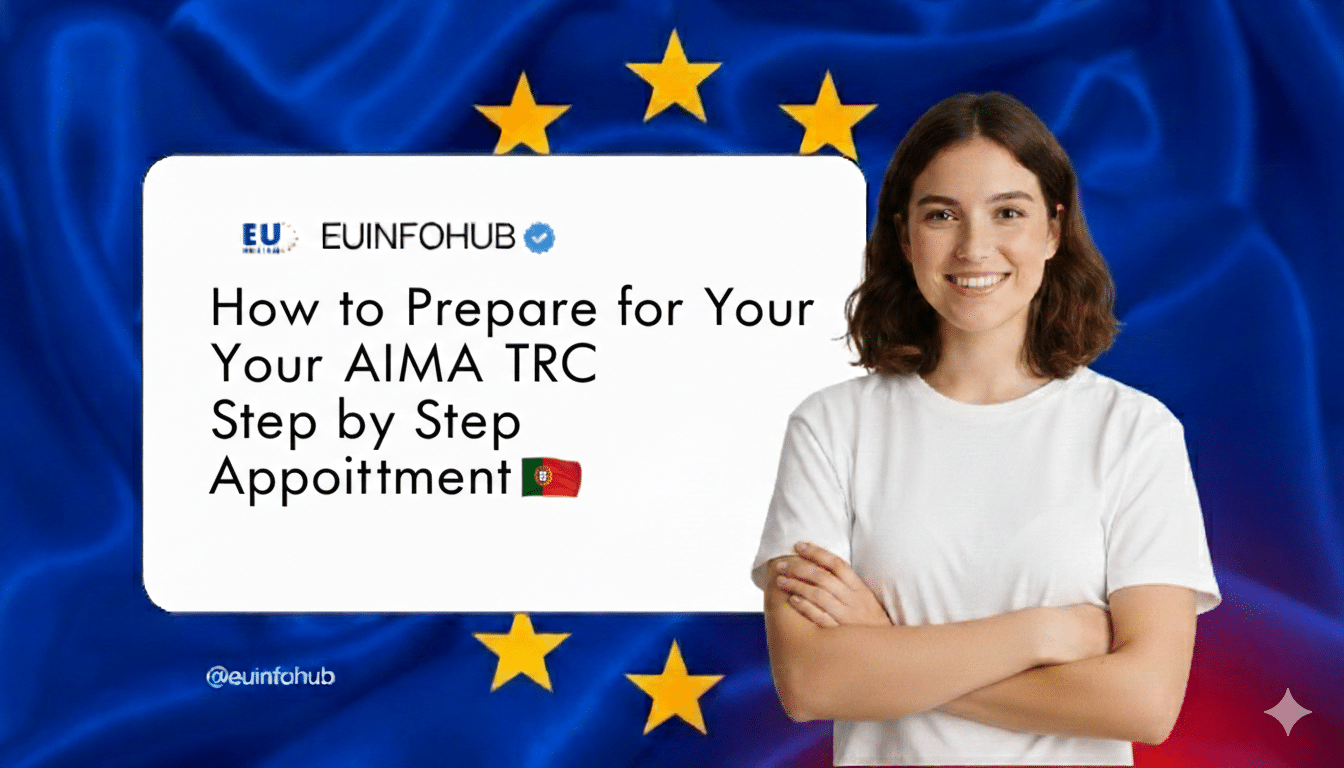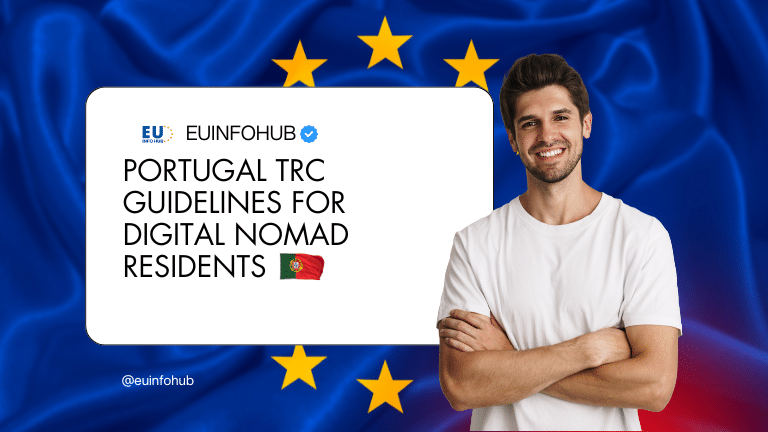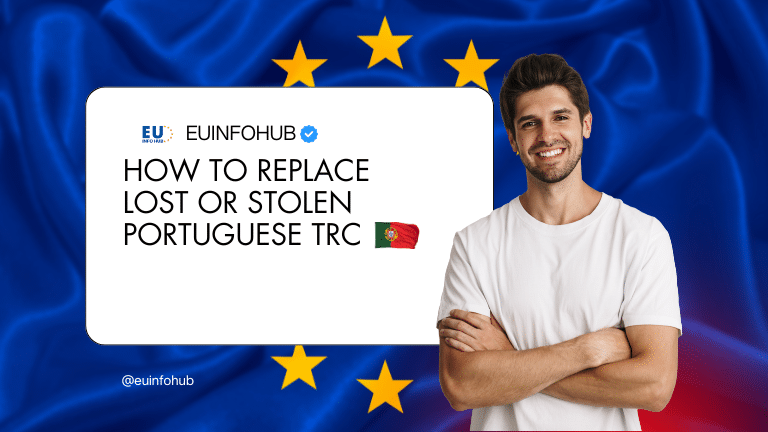Germany has really become a top destination for professionals from all over the globe. Well, it boasts a robust economy, a high demand for skilled workers, and opens the door to larger markets throughout Europe. Many people now see Germany as the destination for their next career expedition.
But there are visa regulations before you can really enter the country.
This is a comprehensive guide on how to apply for a German employment visa. It will cover eligibility, required documents, application stages, and actions to be taken after you have arrived.
Types of Employment Visa in Germany
There are various types of work visas available to applicants in Germany. Here is a short overview:
- Standard Employment Visa: For professionals with a job offer in a qualified occupation.
- EU Blue Card: For highly skilled professionals with a high income and a recognized degree.
- IT Specialist Visa: For experienced tech professionals, even without a formal degree.
- Job Seeker Visa: It permits skilled workers to enter Germany and seek employment.
For a more in-depth exploration of various visa categories and their details, visit Work Visa Types.
Now that you’ve got an overview of various work visa options in Germany, let’s discuss the eligibility requirements.
Checking the Eligibility
Make sure you are qualified to apply for the visa. This would save you lots of time during unnecessary delays in processing your application.
Here are the things you must have before applying for a European work visa:
Job Offer from a German Employer
A confirmed job offer or signed employment contract from a German company must be in hand. The job must match your qualifications and local labour standards. Sometimes, a Federal Employment Agency approval is needed.
Minimum Salary Requirements
Salary is a major consideration.
In the case of the EU Blue Card, the gross salary threshold is typically higher (usually exceeding €45,000). Standard work permits would likely accept a lower salary depending on the sector and other job market requirements.
Recognition of Your Qualifications
Your foreign degree or training must be recognized in Germany. This can be verified through the official ANABIN database. If it is not listed, it may need to be recognized before you can apply.
Which Documents do You Need?
When applying for a German employment visa, documents must be submitted in an organized manner. Here are some of the documents you need:
- Passport
- Employment Contract or Job Offer
- Academic and Professional Credentials
- Health Insurance
- Accommodation Proof
- Visa Application Form
- Biometric Photo
- Cover Letter
Make sure all documents are legalized and fulfill all the standards.
How to Apply for an Employment Visa in Germany?
First, you will have to visit the official website of the German embassy or consulate in your home country. Because each embassy might have a slightly different approach on how to reach them, how appointments are scheduled, and what documents you need to prepare, so, this is essential.
You’ll find:
- Visa appointment booking systems
- Country-specific document checklists
- Application forms and guidelines
- Email or hotline for inquiries
After you grasp the procedure well, it is best to secure your visa appointment early; in some countries, this could go up to some weeks in waiting time.
Step 2: Prepare All Required Documents
This is the most time-consuming and the most significant one. If any single document is missing, it can lead to the rejection of your application. So, make sure all your documents are well prepared and presented in an organized and professional way.
Usually, the documents required are:
- Valid Passport having validity ranging from six to twelve months and with adequate blank pages.
- A duly signed employment agreement or the official job offer from a German employer.
- Degree certificates
- A motivation letter explaining why you want to work in Germany and why you qualify for it.
- Health Insurance matching visa terms (travel insurance is not enough).
- Proof of Accommodation in Germany (like hotel reservation, rental agreement, or invitation letter.
- Biometric Passport Photo (must meet German photo standards
Step 3: Submit Your Application and Attend the Visa Interview
Try to arrive on time on the day of the appointment. Make sure to carry two sets of documents. This interview session is for a short time and formal. An embassy officer might ask about your job, qualifications, and your plans in Germany, so be prepared.
If all seems fine, your documents will then be taken for processing by the embassy, which may give you a reference number or receipt.
Step 4: Wait for Visa Processing
Your application is reviewed once it is submitted. Most commonly, the embassy will contact the German immigration office in the same city where you are employed to validate your employment offer and compliance with all legal requirements.
Various aspects determine the visa processing period:
- Country of application (some have faster/slower embassy processes)
- Time of year (peak seasons can cause backlogs)
- Type of visa (EU Blue Card may be faster than a regular work visa)
- Completeness of your documents (missing or unclear paperwork causes delays)
Tip: You are advised to apply 2-3 months before the date you want to start your course to avoid trouble.
Step 5: Get Your Visa and Prepare for Germany
After the approval of your visa application, the embassy will inform you via mail or call that your passport is ready for collection. A visa sticker is placed onto it, and this is usually your ticket into Germany and allows you to stay within its borders for the first 90 to 180 days.
The visa is not a permanent one; therefore, you are advised to apply for a residence permit at the local foreigners’ office upon your arrival in Germany before your entry visa expires.
What to Do After Receiving the Visa:
- Book the flight and arrange for a permanent place to stay in Germany.
- Make sure to have hard copies of documents while you travel.
- After arriving, register for residence, obtain a tax ID, and apply for a residence permit.
What Opportunities Does a German Employment Visa Offer?
A work visa in Germany is far beyond employment. With this visa, you get access to a variety of benefits: career advancement, a diverse lifestyle, and even security for your future. Germany has it all.

1. Access to Germany’s Job Market
You have access to the labor market of one of the strongest economies in Europe. Germany is constantly in pursuit of internationalized professionals in information technology, engineering, and health services. In light of all the demanding, skilled labor, it should be easy to get a good-paying job.
2. A Pathway to Stay Longer
Many wonder about the difference between citizenship vs. residency, especially when considering long-term options. The first step to residency in Germany is an employment visa. After working there for some years, you can apply for permanent residency, which provides living stability without renouncing your current citizenship.
3. Family reunification
Work visas typically grant permission for family reunification. Your spouse can join you, work, and/or select the best education in Germany for the children!
4. Boost Your Career
Germany is recognized for its emphasis on innovation and skill development. Working in this country not only shines on your resume but also provides you with global networking opportunities.
5. Enjoy Social Security Benefits
As a work visa holder, you are a contributor to the social security system in Germany. This sets you up for good health care, pension plans, and unemployment benefit plans for you and your family.
6. Embrace European Life
Germany is more than just an opportunity; it is a lifestyle. From efficient public transport, stunning sights, and culture-related events, living in Germany would be an amazing time all around.
How does a work visa fit in your grand plan? Check out this blog on citizenship vs. residence and think of what awaits you!
Wrap Up
It takes a long time and attention to detail to complete an employment visa application for Germany. You need to make sure you have fulfilled all the requirements, all the papers you´ll need, and all the steps you have to follow. With this, you can improve your admission chances.
For further details about visa types and working in Europe, don’t forget to check out the EU Info Hub. It is your trusted guide to moving and working abroad.
FAQ’s
How long does it take to get an employment visa for Germany?
The time to process a visa depends on your home country and the embassy workload. In most cases, it typically takes 4 to 12 weeks. It’s always a good idea to apply in advance. You also have to stay updated with your German embassy.
Do I need a job offer before applying?
Yes, A confirmed job offer is the basic requirement when applying for an employment visa. Your visa application will not move forward without an official job contract letter. The authorities need proof that you are hired before issuing the visa.
What documents are required for the visa?
You’ll need some important documents that include a valid passport, a signed employment contract from a German company, and your academic and professional qualifications. You also need proof of accommodations in Germany, and sometimes health insurance details.
Can I bring my family?
Yes, you can bring your family with you. Germany allows eligible family members to join you through a family reunification visa. But there are certain conditions, like having enough income to support your family and sufficient living space. Your family an live with you after the above stuff is approved.

